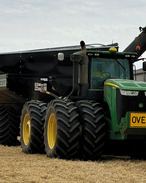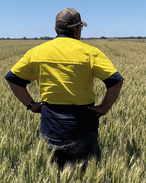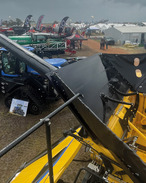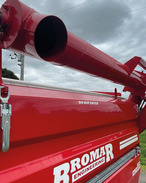This article is 7 years old. Images might not display.
The biosecurity zone has special conditions including restrictions on the growing and sale of certain lupins within the zone. There are no restrictions on growing lupins outside of the lupin anthracnose biosecurity zone.
Lupin anthracnose was detected for the first time in October 2016 in commercial lupin crops in NSW in the eastern Riverina region. Natural hosts of lupin anthracnose are not established in NSW and as the infected crops were relatively isolated, successful eradication of the disease was considered possible.
According to Pulse Australia, lupin anthracnose threatens the viability and future of NSW’s lupin industry.
“Growers and agronomists are strongly encouraged to be vigilant this season, familiarising themselves with symptoms and inspecting crops at least once every six weeks. Although symptoms more commonly appear around flowering, seedling infections can still occur,” the industry group said.
A five point management and biosecurity plan is recommended for all lupin producers in NSW to prevent establishment and spread of the disease:
- Treat seed for sowing with a fungicide seed treatment containing thiram.
- Separate this year’s lupin crop away from last year’s lupin stubble.
- Control volunteer lupins on your property.
- Control machinery and people movement into and out of lupin crops. Do not enter other lupin crops if disease is suspected without changing clothing and footwear and washing hands thoroughly.
- Apply a foliar fungicide at 6-8 weeks post emergence (with a grass herbicide if suitable) using fungicides containing mancozeb, chlorothalonil or azoxystrobin, and a follow up at pre-canopy closure.
Lupin anthracnose is a notifiable disease in NSW, and any suspected infected crops must be reported. Alternatively samples can be sent by following these instructions:
- Sample plants that show unusual symptoms.
- Wrap the plants in damp (not wet) paper towel and seal in both a plastic container and ziplock bag, or two ziplock bags.
- Send the sample by express post early in the week. A cold pack is not needed.
Submit sample with a completed sample submission form.
Send samples to:
Call the Exotic Plant Pest Hotline on 1800 084 881 or email clear photos with a brief explanation and contact details to: biosecurity@dpi.nsw.gov.au
Dr Kurt Lindbeck, NSW DPI,
Wagga Wagga Agricultural Institute,
Pine Gully Road, Wagga Wagga NSW 2650
Phone: 02 6938 1608
More information:






















